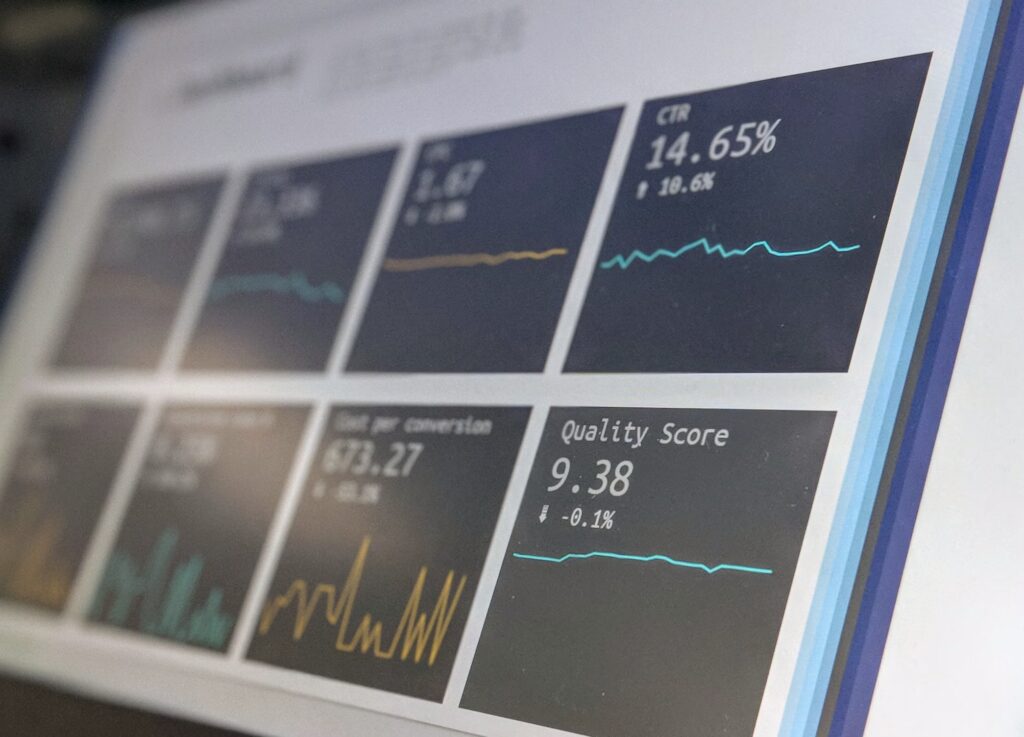
A large marketing budget is often a luxury for many small businesses. However, small budgets can still lead to successful campaigns. Digital marketing services and platforms give smaller firms access to affordable strategies that can generate significant results.
Why Digital Marketing Matters
There are currently 5.56 billion internet users worldwide, translating to 67.9% of the global population. Adopting digital marketing strategies is the logical next step for small businesses and marketers to reach their ideal customers.
Many people use the internet as their first resource for finding products and services they like or brands they want to support. Digital marketing strategies allow businesses to create a strong online presence for increased visibility and stronger customer relationships.

Top Affordable Digital Marketing Services for Real Results
One benefit of digital marketing is its accessibility. Anyone can use and post on the internet, making it easier for small businesses to run marketing campaigns on a budget.
Online marketing platforms and strategies are relatively user-friendly, offering dedicated dashboards and tools to help business owners and professionals of all skill levels craft and launch effective marketing campaigns.
Search Engine Optimization (SEO)
SEO has become a fundamental part of any comprehensive digital marketing strategy. It refers to structuring and optimizing a website to increase its rankings on search engines.
Working on SEO is a simple yet effective way to reach audiences. People use search engines to learn about different topics and find solutions to their problems. Reaching the top spot on a search engine results page can be a great way to bring traffic to a business website and promote one’s products and services.
In its simplest form, SEO can be pretty affordable. Several free and inexpensive tools and plugins are available for website audits, keyword research, content optimization, and other necessary tasks to improve rankings.
It’s important to remember that SEO is a long-term strategy, and results might not appear overnight. However, with consistent effort, quality content, and adjustment to market trends and algorithm updates, brands can improve their page rankings over time and establish credibility with search engines and their target audience.
Social Media Marketing
In 2025, people spent an average of 141 minutes a day on social media. While these platforms initially helped people form social connections, they have now become ideal avenues for businesses to promote themselves and connect directly with their customers.
Social media sites like Facebook, Instagram, LinkedIn, and TikTok have dedicated tools and platforms to help businesses craft and launch marketing campaigns. Brands can schedule posts, monitor engagement, and even launch highly targeted advertising campaigns.
Small businesses can start and grow their social media presence with a minimal budget. With the right strategy and engaging content, brands can gain widespread attention and even go viral.
This capacity to reach broader audiences, interact directly with them, and create communities makes social media a powerful yet affordable tool for strengthening a brand’s digital presence and potentially its bottom line.
Email Marketing
Email is one of the earliest yet most effective forms of internet communication. Nearly everyone who uses the internet has an email address — it’s highly likely that a brand can reach its ideal customers through this platform.
It’s a direct line of communication to each person, which allows businesses to send personalized messages, follow-ups, special offers, custom recommendations, and other promotions.
Email marketing tools have also made it more efficient to create personalized, professional-looking marketing messages en masse. Tools like MailChimp and Klaviyo offer customizable templates, automation, and audience segmentation capabilities to help marketers craft and send customized emails based on different audience needs, pain points, and interests.
Content Marketing
Content marketing is the strategic use of content — blog posts, videos, podcasts, webinars, ebooks, and more — to generate interest in a brand and its offerings.
This type of marketing is usually more subtle than traditional advertising. Instead of directly promoting one’s product or service, content marketing demonstrates expertise and value, which elicits trust and engagement around the company.
Since content marketing relies more on expertise, creativity, and consistency than high ad budgets, it’s one of the more budget-friendly ways to attract, engage, and convert one’s target audience.
For example, a well-researched, engaging blog post attracts users seeking information about a specific topic and earns people’s trust. This effect can compound over time — with regular updates and maintenance, a high-quality content piece can stay effective for years.
Relevant Metrics for Measuring the Success of Digital Marketing Campaigns
Budget marketing campaigns can still be highly effective. After launching a digital marketing campaign, tracking relevant metrics helps teams track their performance and adjust their approach if necessary.
Website Traffic
The number of visitors to a brand website can indicate how well a campaign is working. Purchases, engagement, and signups often begin with a website visit, and the more traffic a business receives, the higher its chances of engaging and converting visitors.
Engagement
Analyzing how visitors interact with a website, email, or social media account can unlock patterns and insight into their preferences and interests. It allows marketers to tweak their approach, find ways to keep people’s attention, and lead them further down the sales funnel.

Conversions
The main goal of marketing is to push people toward a specific action, like making a purchase, signing up for a newsletter, or attending an event. The conversion rate measures the percentage of users who visit a website or profile and complete an action. It helps gauge the effectiveness of a marketing campaign or strategy.
Return on Investment (ROI)
Despite the availability of free or affordable marketing platforms and strategies, these efforts still require resources to implement, monetary or otherwise. The ROI measures the value a marketing campaign has generated compared to the resources put into it. It tells a business whether or not a campaign or strategy is making money.
The basic formula looks like this:

A positive ROI means the company is making money, while a negative ROI implies the opposite.
Should a Company DIY or Outsource Digital Marketing Services?
When planning to implement a digital marketing strategy, business owners must decide whether to handle everything in-house or outsource the work to a professional agency. Each approach has advantages and challenges — the right choice depends on a company’s unique needs and goals.
DIY Digital Marketing
Keeping digital marketing efforts in-house is one way to keep things cost-effective. A small business can hire a marketing specialist or build a small marketing team to strategize and launch campaigns. It can also train existing employees and give them the right tools to do the same.
This approach gives the brand complete control over the strategy while still maintaining lower marketing costs. It builds in-house expertise that grows over time. However, this approach will take time and experimentation to gain success, especially when building a team from scratch.
Outsourcing to a Digital Marketing Agency
Another way to approach digital marketing is to hire an external agency. These companies already have a team of specialists, proven strategies, and tools that smaller enterprises might not have access to.
Working with an agency allows brands to launch optimized, data-driven campaigns from the start. Agencies are more independent, allowing business owners to focus on operations while reaping the benefits of a strong digital presence. However, they can also be more costly, and working with a firm with a questionable track record might do more harm than good.
Small Budget, Big Impact
A small marketing budget might be a limitation, but it encourages teams to be more intentional and strategic. Restriction can breed creativity, and brands can still launch successful campaigns through cost-effective platforms and strategies. Even the leanest marketing plan can deliver significant results.




Leave a Comment